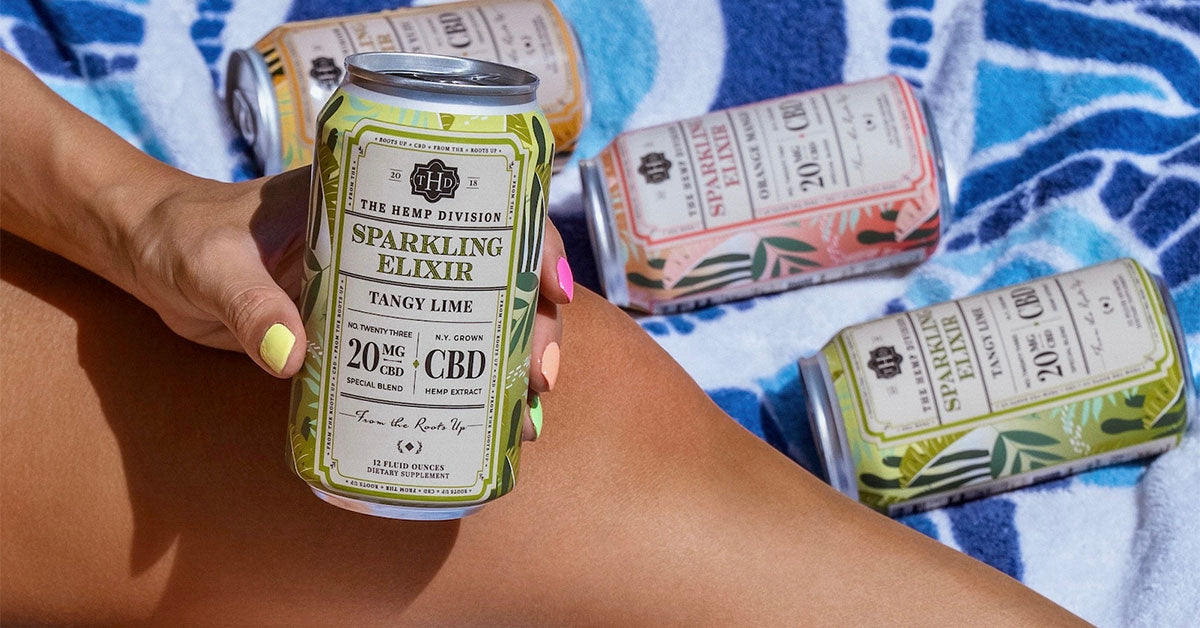It’s easy to understand why folks sometimes have difficulty understanding what distinguishes CBD and THC from each other. After all, like human twins, they are related, and they do look alike. They even share that same distinctive aroma. Yet even though they come from the same mother ship, CBD and THC are most definitely two different creatures.
Let’s start by talking about cannabinoids, which both CBD and THC are.
CannabiWHAT?
CBD and THC both come from the cannabis plant, and they are both a compound called “cannabinoids.” There are over 100 different types of cannabinoids in the cannabis plant. This is somewhat similar to how black, green, white, oolong, yellow and pu-erh teas all come from the Camilla sinensis plant, but how their processing makes them entirely different from one another. While processing isn’t what makes CBD and THC different – it’s their chemical makeup that is the differentiator – they are sourced from the same plant.
Cannabinoids interact with our body’s endocannabinoid receptors to produce effects, mimicking the body’s own neurotransmitters. The endocannabinoid system (ECS) is a complex cell-signaling system that plays a role in regulating a wide range of functions and processes, including sleep, mood, appetite, memory, reproduction, and fertility. Endocannabinoids are molecules made by your body. They are similar to cannabinoids, except they’re produced by your body and not the cannabis plant. Endocannabinoid receptors are found throughout your body. Endocannabinoids bind to them in order to signal that the ECS needs to take action. Cannabinoids also bind to certain receptors, which is how CBD and THC interact with our system.

The Skinny on CBD and THC
So we’ve established that CBD and THC are each a cannabinoid coming from the same plant. And as we said previously, while they look and smell similar, their chemistry is not. Think siblings raised in the same house who aren’t alike at all. That’s CBD and THC.
CBD stands for “cannabidiol” and is a non-psychoactive component of the cannabis plant. In 2018, the World Health Organization’s Expert Committee on Drug Dependence (ECDD) carried out a formal review of cannabis and all cannabis-related substances that are currently subject to international control measures. At that time, the ECDD advised that certain cannabis-derived medicines like cannabidiol have no potential to be abused or cause dependence. It further went on to talk about potential health benefits, which are widely believed to be accurate but more studies are needed. (Read more about what the WHO has to say about CBD on this report.)
THC stands for “tetrahydrocannabinol,” and it’s the psychoactive component in cannabis that causes a person to get “high,” which CBD does not do. There are trace amounts of THC in CBD, but not enough to have negative side effects. The hemp plants from which CBD is derived are a high-CBD variety of the cannabis plant that are low in THC – less than the legal 0.3 percent allowed.
Will CBD Get Me in Trouble With the Po-Po?
Absolutely not! Hemp-derived CBD, like the CBD used in all The Hemp Division products, is legal in all 50 states in the U.S. Our plants are tested by state regulators to ensure they have the proper amounts of CBD and the mandated less-than 0.3% of THC. In order to grow hemp, you must have the proper licensing and testing mandated by each individual state where growing hemp is legal.
For those concerned about the possibility of CBD showing up as THC on a drug test…we can say that while our independent test results show 0% THC in our own CBD-isolate products, if you are subject to drug testing we suggest talking with your physician before consuming any hemp products. Individual body chemistry reacts differently to cannabinoids, and the possibility of even trace legal amounts of THC that can be in hemp products are factors to keep in mind. (CBD isolate products contain nothing except pure, isolated CBD— no other cannabinoids. Our full-spectrum CBD contains a full range of cannabinoids extracted from hemp, which can include trace but legal amounts of THC.
We hope that helps clear up any lingering questions about the difference between CBD and THC. While you still may not be able to tell your cousin’s identical twins apart, now you know what makes CBD and THC different!



